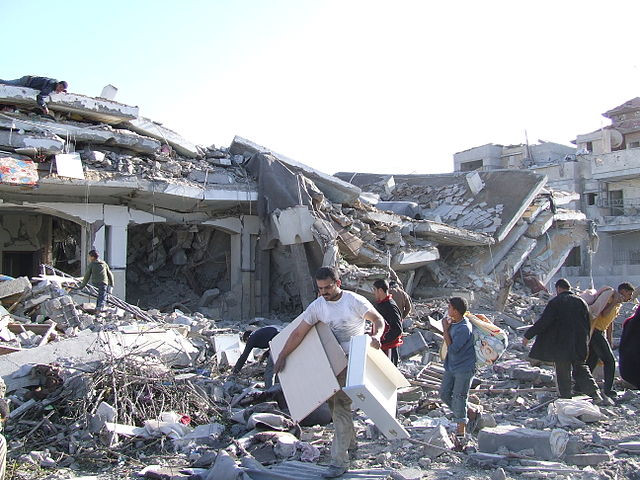An Israeli airstrike early Thursday targeted senior Hamas leaders in Gaza, killing at least 11 people, including a high-ranking member of the militant group's internal security apparatus. The strike, which occurred in the Al-Mawasi region in southern Gaza, also claimed the lives of three children, according to Palestinian officials. The Israeli military stated that the attack was aimed at disrupting Hamas operations, specifically naming Hossam Shahwan, a senior official involved in intelligence gathering for the group's armed wing, as a primary target.
Palestinian authorities identified another casualty as Major General Mahmoud Salah, the head of Gaza's police force. Salah's death was confirmed by Gaza's Interior Ministry, which accused Israel of attempting to destabilize law and order in the besieged territory. The ministry issued a statement condemning the attack, saying, "By committing the crime of assassinating the Director General of Police in the Gaza Strip, the occupation is insisting on spreading chaos in the Strip and deepening the human suffering of citizens." The Israeli Defense Forces (IDF), however, did not confirm Salah's killing in its report.
The airstrike occurred in Al-Mawasi, a region previously designated as a humanitarian zone by Israel. Thousands of displaced Palestinians have sought refuge there, living in makeshift tents made of cloth and nylon. Despite this designation, the area has repeatedly come under attack, highlighting the precariousness of civilian safety in the ongoing conflict. Humanitarian agencies have raised concerns about the deteriorating conditions, with limited access to essential aid compounding the crisis.
The conflict, now in its 15th month, has resulted in widespread destruction and a staggering death toll. Gaza's Health Ministry reports that more than 45,000 Palestinians have been killed since the fighting began, with over 108,000 injured. The October 7, 2023, Hamas-led attack on Israel, which killed approximately 1,200 people and left 250 hostages, ignited the current escalation. The retaliatory Israeli military operations have decimated Gaza's infrastructure, including its healthcare system, and displaced hundreds of thousands.
International agencies have warned that the humanitarian situation in Gaza is nearing collapse. Aid delivery has been severely restricted, with lengthy inspections, damaged roads, and strikes on aid convoys creating insurmountable obstacles. The United Nations has repeatedly urged Israel to fulfill its responsibilities as the occupying power to ensure the safe flow of aid. In recent months, desperation among displaced Palestinians has led to incidents of looting at gunpoint, further undermining efforts to deliver humanitarian relief.
Israel has defended its operations, claiming that Hamas uses civilian areas as shields for its activities. This justification has been cited for strikes in areas such as Al-Mawasi, despite the high civilian toll. Meanwhile, human rights organizations have called for accountability, warning that targeting hospitals and civilian zones could constitute violations of international law.
Prime Minister Benjamin Netanyahu recently hinted at progress in negotiations for a hostage and ceasefire deal, though he provided no timeline for a potential resolution. As the conflict drags on, calls for a ceasefire and increased humanitarian access have grown louder from the international community. However, both sides remain entrenched, with no immediate end in sight.
The ongoing airstrikes have further eroded Gaza's law enforcement capabilities, already crippled by the conflict. The collapse of policing has compounded the suffering of displaced civilians, many of whom rely on humanitarian aid for survival. Entire neighborhoods have been reduced to rubble, and the lack of infrastructure has made life increasingly untenable for Gaza's population.




